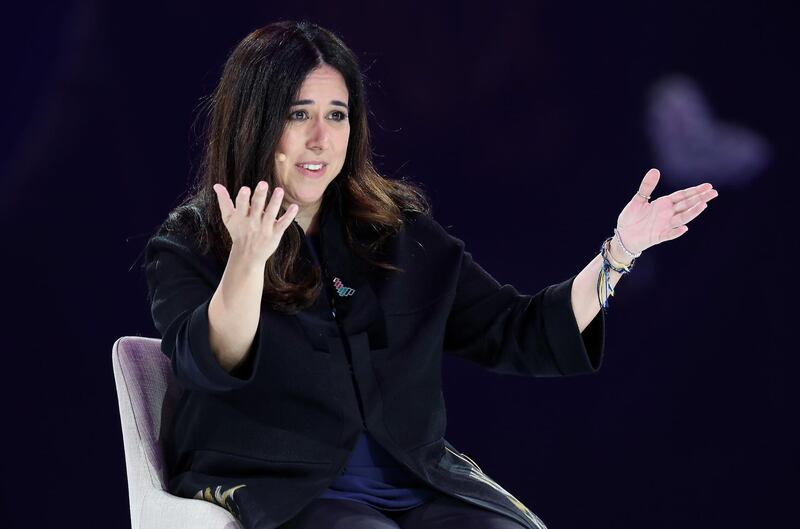Mandatory gender quotas would help to fast-track equal representation for women in government in the Middle East, the UAE's ambassador to the UN said.
For too long, stereotypes and stigmas surrounding a woman’s place in society have led to low representation in the region's politics. But reformed legislation would help to shatter this bias.
Speaking at the Global Women’s Forum in Dubai, Lana Nusseibeh said different countries were working at a different pace to achieve this goal.
“It is important to look at the UAE model as an example and see what is successful about it,” Ms Nusseibeh said.
“The quota system [in the Federal National Council elections] that was decreed and implemented by the President, Sheikh Khalifa, in 2018 led to gender parity in our parliament."
The new ruling meant Emirati women would occupy 50 per cent of the FNC.
Ms Nusseibeh said it was a direct enforcement of female participation that challenged and brought an end to social and cultural conservatism towards women.
“One of my first jobs in government was running the communications department of the Ministry of the Federal National Council Affairs in 2006," she said.
“That is when the UAE embarked on an election-type process, leading to a widening of political participation in the country.”
Ms Nusseibeh said that at the time, women were campaigning hard but “socially and structurally” they didn’t have the same access as men to social networks and other means of communication.
She said that as a result, their campaigns were not as wide-reaching as the men's.
“That is when the leadership pushed forward with the quota route," Ms Nusseibeh said.
“It is an effective tool in making sure the gender gap is closed in a quicker space of time.”
She said that because of the varying gamut of socio-economic and political trends in the region, there was no “one-size-fits-all model for gender equality”.
But addressing and amending legislative frameworks would be one piece of a bigger puzzle.
Ms Nusseibeh said that when clear legislation exists and a constitution mandates that men and women, for example, should be paid equal for the same work, it is no longer a question.
“One of the biggest issues dividing the gender gap is pay, so it is about the leadership of a country making changes that promote an attitude of inclusion," she said.
“It is about understanding that men and women complement each other in a partnership.”
Ms Nusseibeh said that as the world moved towards more “institutional forms of government”, it would make sense to harness that diversity even more in expatriate-heavy populations such as the UAE.
“It would be interesting to make sure that we continue to take into account the richness of experience that exists in our diverse community," she said.
"That would enrich the global debate about gender balance.”







